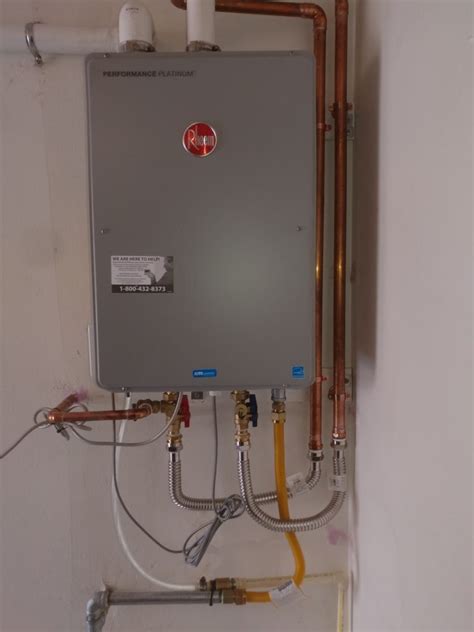As we step into 2025, water heating technology continues to evolve, and homeowners are increasingly turning to tankless water heaters for their energy-efficient capabilities. These on-demand units heat water only when you need it, providing a continuous supply while reducing energy consumption. To make this transition easier on your wallet, various tankless water heater rebates are available. This guide will explore everything you need to know about these rebates, ensuring you save big in 2025!
Understanding Tankless Water Heaters
Tankless water heaters, also known as on-demand water heaters, work by heating water directly without the use of a storage tank. When you turn on a hot water tap, cold water travels through a pipe into the unit, where it’s heated by either gas or electricity before being delivered to your faucet. This method eliminates the need for a large storage tank and allows for energy savings because the system only activates when hot water is needed.
Benefits of Switching to a Tankless Water Heater
- Energy Efficiency: Tankless water heaters can be 24-34% more energy efficient than traditional tank heaters, which can lead to significant savings on energy bills.
- Space-Saving: These units are compact and can be installed in smaller areas, freeing up space in your home.
- Longer Lifespan: With a lifespan of 20 years or more, tankless water heaters outlast traditional units, which typically last around 10-15 years.
- Continuous Hot Water: Enjoy an endless supply of hot water, perfect for larger families or homes with high hot water demands.
Eligibility for Tankless Water Heater Rebates
Before you jump into purchasing a tankless water heater, it’s crucial to understand the eligibility requirements for the various rebates available. Generally, these incentives may vary by state or local utility companies, so researching local programs will provide the most accurate information. Here are some common eligibility criteria:
- You must be a homeowner and the property must be your primary residence.
- The installation should adhere to local codes and regulations.
- The unit must meet energy efficiency ratings set by local or federal guidelines.
- You may need to use a licensed professional for installation.
Types of Rebates Available
In 2025, homeowners can benefit from several types of rebates that can significantly reduce the upfront costs of a tankless water heater:
1. Federal Tax Credits
The federal government offers tax credits for installing energy-efficient systems in your home. Under the Energy Policy Act, certain tankless water heaters may be eligible for tax credits based on their energy factor ratings.
2. State and Local Rebates
Many states offer their rebate programs that can work in tandem with federal incentives. These rebates can vary extensively, so check your state’s energy department website for particular programs.
3. Utility Company Incentives
Your local utility company may also have rebate programs to incentivize switching from traditional water heaters to tankless models. These programs often aim to reduce overall energy consumption and can include cash rebates or bill credits.
The Installation Process
Once you’ve chosen the right tankless water heater for your home, it’s time to consider installation:
- Choose a Qualified Professional: Look for licensed plumbers or HVAC specialists who are experienced in installing tankless systems.
- Assess Requirements: Ensure that your home’s electrical or gas supply meets the demands of the new heater.
- Inspections: Some localities may require inspections before and after installation to ensure compliance.
Maximizing Your Savings
To maximize your savings in 2025, follow these tips before purchasing and installing a tankless water heater:
- Research all available rebates and incentives to understand your potential savings.
- Choose a reputable brand with a high energy factor rating for better efficiency.
- Consider maintenance options to ensure your system operates at peak performance.
Conclusion
Switching to a tankless water heater can be a wise investment that not only conserves energy but also significantly reduces your water heating costs. With numerous rebates available in 2025, it’s the perfect time to make the transition. By understanding the benefits, eligibility criteria, and types of rebates, homeowners can set themselves up for long-term savings and improved home efficiency. Don’t miss out on the chance to save big this year!
FAQs
1. What is the average cost of a tankless water heater?
While costs can vary based on brand and specific features, a typical tankless water heater can range from $800 to $3,000, excluding installation.
2. How long can I expect my tankless water heater to last?
With proper maintenance, most tankless water heaters can last for 20 years or more, compared to around 10-15 years for traditional water heaters.
3. Can I install a tankless water heater myself?
It is strongly recommended that you use a licensed professional for installation to ensure safety and adherence to local codes.
4. Do all tankless water heaters qualify for rebates?
No, only models that meet certain energy efficiency ratings and guidelines set by local or federal programs are eligible for rebates.
5. How can I find out about local and state rebate programs?
Check your state energy department website or your local utility provider’s site for up-to-date information on available rebate programs.
This HTML code represents an article formatted for a WordPress website, covering everything from the benefits of tankless water heaters to specific information on rebates and how to maximize savings.
Download Tankless Water Heater Rebate 2025
